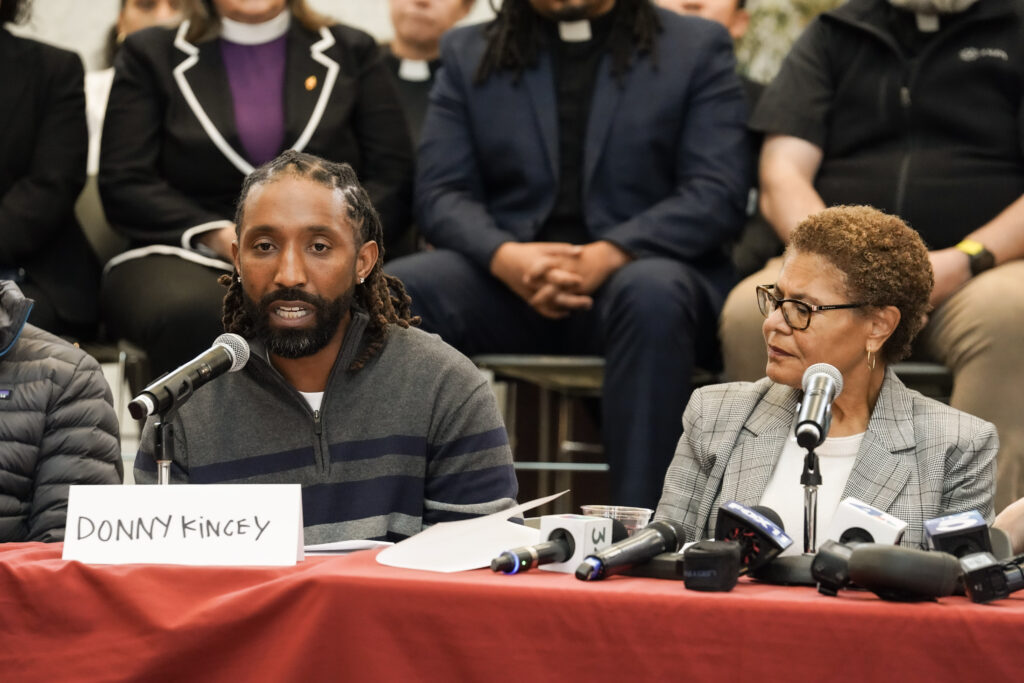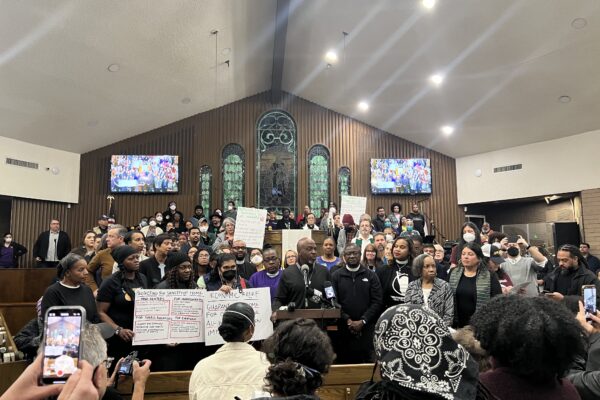With a new project entitled “Faith Under Fire,” the Center for Religion and Civic Culture (CRCC) and the Equity Research Institute (ERI) at USC are partnering to study the reconstruction of the Los Angeles region’s social fabric following the 2025 wildfires. By examining the intersection of faith communities and social justice movements in the wake of the fires, the project will draw lessons for both future recovery efforts and longer-term incorporation of community and faith voices in L.A.’s civic life.
While much attention has focused on real estate developers buying property in Altadena and the Pacific Palisades, grassroots efforts have sought to ensure that residents who suffered the most—including those who lost homes and properties as well as immigrant and other workers who lost livelihoods—are at the center of recovery efforts.

Faith organizations and social justice networks organized immediate relief efforts, even as more than a dozen houses of worship were destroyed or damaged. LA Voice and other partners organized one of the first attempts to bring together residents from both Pacific Palisades and Altadena to find common ground. Such groups are continuing to work for equity in recovery efforts, for instance, by advocating on behalf of distressed renters and displaced workers. Organizing around the wildfires also has intersected with community responses to the Trump administration’s stepped-up immigration raids.
“This research could point to the ways that the faith and community sectors could contribute to a more cooperative approach to recovery and better resilience against future disasters — both natural and man-made,” says Richard Flory, CRCC’s executive director and the project’s co-leader.
The project represents a moment of coming full circle for CRCC and ERI. Both have watched faith and organizing networks develop since Los Angeles’ 1992 civil unrest (read “LA Rising” from ERI and “Thirty Years Later” from CRCC). The John Randolph Haynes and Dora Haynes Foundation, which is funding this “research-to-action” grant under its Governance and Democracy Initiative, has previously supported both organizations’ work in this area.
In 1992, Los Angeles burned following the acquittal of four police officers caught on camera beating Black motorist Rodney King and the suspended sentence for the convicted killer of Latasha Harlins, a 15-year-old Black girl. Pastors who were veterans of the civil rights movement organized their congregations to respond to both protesters and civic leaders, pressing for solutions to the underlying causes of the violence.
The result was the development of new relationships and coalitions within the many faith communities of Los Angeles, that often transcended the traditional liberal/conservative faith divide. Today, those networks have developed beyond what was planted in 1992, and have altered the civic landscape, working for local economic development, better working conditions, community-oriented policing, and protection of immigrant rights.
Many public agencies now recognize the necessity of engaging with the variety of faith communities to get their buy-in for programs and policies intended to improve the lives of those historically excluded. Yet, as recently seen with the opposition to the immigration raids in June 2025, faith-led groups are still not recognized as full partners in these efforts. This project intends to identify a clear, systematized way to include their knowledge and moral perspective in local governance.

Like 1992, the 2025 wildfires present a key moment for organizers and faith communities. “What happens in the next year — and the shift from immediate relief to long-term goals — can set the stage for decades,” says project co-lead Manuel Pastor, distinguished professor of Sociology and American Studies & Ethnicity and director of ERI.
The Rev. Zachary Hoover, executive director of LA Voice, agrees. He looks to both CRCC and ERI to help his team of faith-based organizers and support staff understand their unique roles. This kind of research, he notes, is “too rare” but impactful.
“This study is needed to understand our sector and move it toward even greater capacity for the good of all our region’s residents,” Hoover says.
Photos Courtesy of LA Voice




